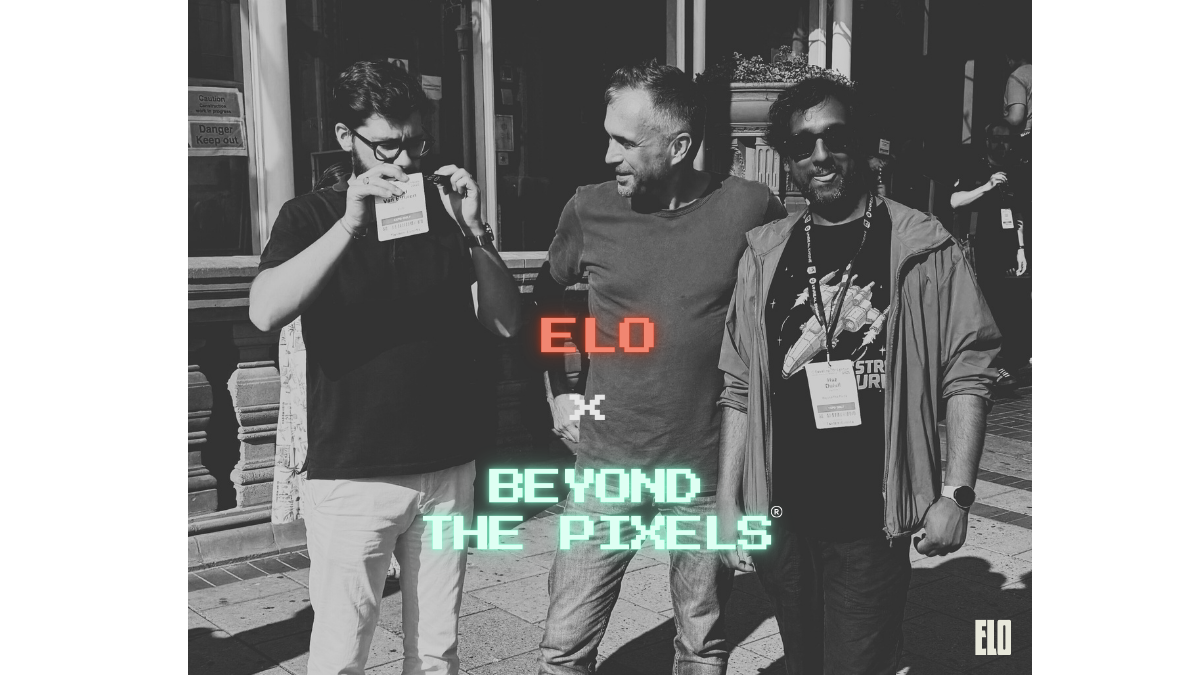Beyond The Pixels, a new-generation game developer started by Hasraf ‘Haz’ Dulull, and ELO, the studio dedicated to empowering gaming communities, have announced a strategic partnership to bring the community to the center of Beyond The Pixels’ retro game portfolio.
Beyond The Pixels aims to create games in short 12-month game development cycles, inspired by 90s arcade games, using modern technology like Unreal Engine and Meta Horizon.
The partnership taps into the growing momentum behind indie games, where titles like Schedule I, Blue Prince, and Clair Obscur: Expedition 33 have shown that compelling experiences can break through without major publisher backing. Their success highlights a shift toward community-first game development, a growing trend that Beyond The Pixels and ELO are now jointly advancing, the companies said.
As part of the partnership, ELO will cultivate a vibrant community around each Beyond The Pixels title, shaping the way players engage with the game, through narrative content, social presence and community activities.
Together, Beyond The Pixels and ELO will engage with the community for feedback, co-creation and storytelling that not only empower the player base but also help establish each game as a culturally relevant experience from day one.
“At Beyond The Pixels, we’re flipping the script – tapping into the golden era of the ’90s, when games were fun-first, fast to produce, and built by passionate small teams. No bloated budgets, no microtransactions. Just tight, creative gameplay that sticks with you. We’re bringing that spirit into today’s world—fusing retro aesthetics and smart constraints with modern tools, multiplatform agility, and day-one community involvement,” said Dulull.
I caught up recently with Dulull for an interview.
“I’m taking the best of film and TV, which is story, structure, production, and then taking the best of how we make games, which is with the community,” he said.
Astro Burn is coming
The first title under this partnership is Astro Burn, a side-scrolling, offbeat sci-fi adventure that embraces chaos, cats, charm and creativity.
In this retro-inspired, side-scrolling bullet hell shoot-’em-up game, you play as a feline space pilot blasting through waves of strange machines to uncover Earth’s mysterious downfall.
From the earliest development stages, the game will be shaped in conversation with its community, ensuring that player voices influence everything from design to world lore, to lay the foundation for long-term fandom through meaningful participation.
Astro Burn is now available for wishlisting on Steam, with a playable demo launching in early September. It could be a $7 to $9 experience, playable in a few hours. The game will be on multiple platforms including PC, Mac, Android and iOS.
“I never want to be creating something that’s locked to just one platform, and I feel like that gives me a lot of freedom and flexibility as a creator,” he said.
He’s also interested in the growing platforms like Fortnite, Roblox and Minecraft. The team has about five people.
“With our partnership with Beyond The Pixels, we put the community at the heart of Beyond The Pixels games. Community is not an afterthought, it’s the engine of innovation,” said Wouter Sleijffers, cofounder of ELO, in a statement. “Together with Beyond The Pixels, we’re channeling the spirit of 90s gaming in a way that’s participatory, relevant, and enduring.”
Origins
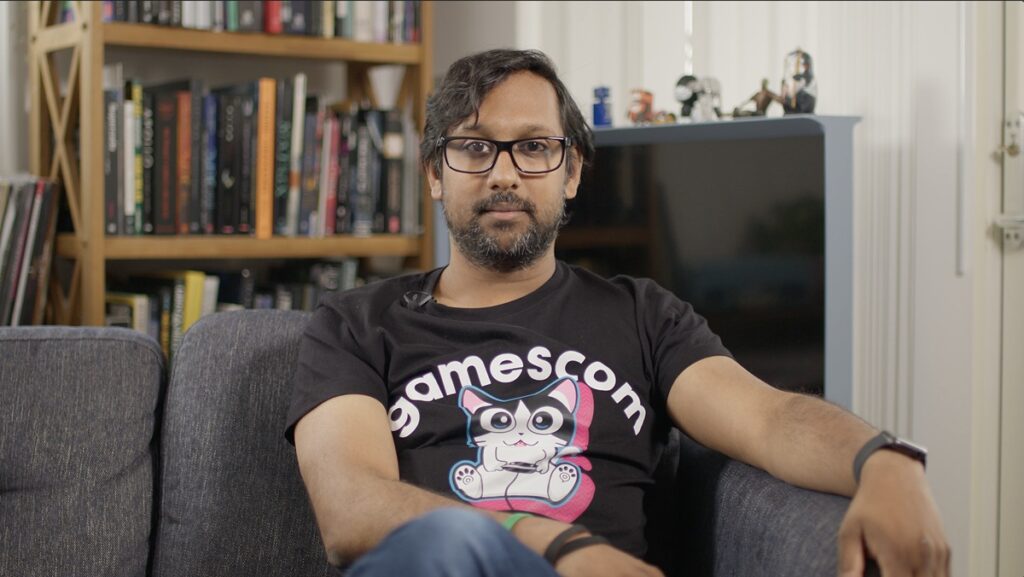
Dulull started making games at Codemasters, working on PlayStation and PC titles including Colin Macrae Rally, before he moved on to a special effects career.
Dulull’s first film, The Beyond, was a huge indie film when it came out in 2018, and it’s still generating money today. He also 2036: Origin Unknown.
He was able to take some of that money from film and put it into his return to games.
“We’re taking an unorthodox approach to financing,” he said. “When it comes to publishers, you can negotiate. We’re in a very interesting state of flux at the moment with the industry, where financing has to change from the way we have been making games and distributing games. The relationship between publishers and developers has to change.”
He went on to do a variety of work, including making Fortnite games, including Moontopia at HaZimation, his own game studio.
Just after the Dulull left HaZimation (now renamed Atelier 11), he announced in March the launch of his new venture: Beyond The Pixels — a game and transmedia studio rethinking and reshaping how original IPs are built and released.
The move followed Dulull’s recent role as cinematics director on Dune: Awakening (Funcom) and comes with momentum as Beyond The Pixels’ YouTube show of the same name, which quietly launched earlier this year, has already surpassed 100,000 subscribers with special guests such as Ryan Lastimosa (Apex Legends, Titanfall 2) and Sarah Wayne Callies (Prison Break, The Walking Dead).
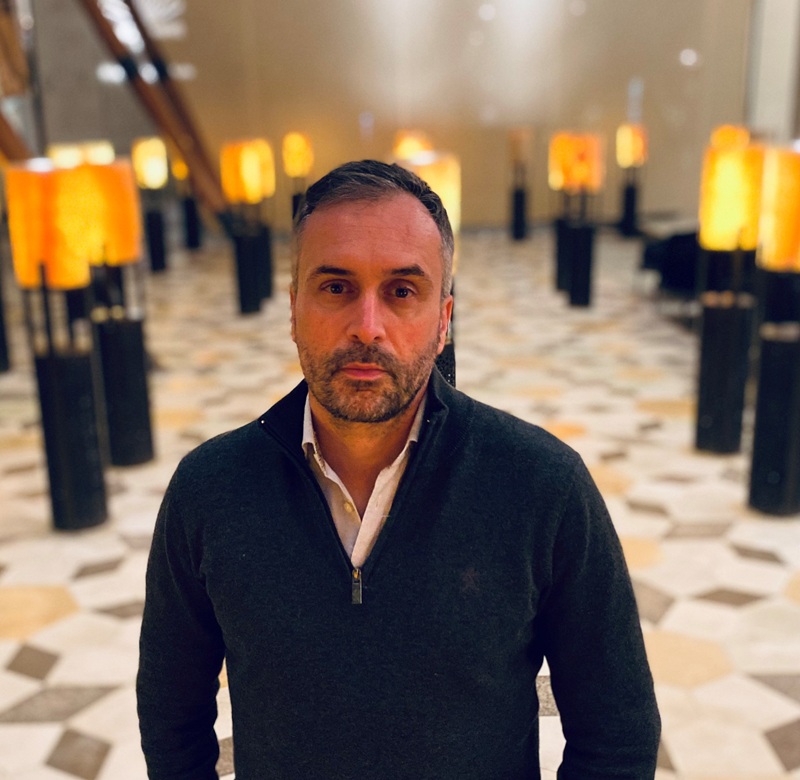
Dulull made his directorial debut with the indie sci-fi feature films The Beyond and 2036 Origin Unknown, which starred Katee Sackhoff (Battlestar Galactica, Mandalorian). His first indie film premiered at No. 2 on the iTunes charts before trending on Netflix, whereas his second film received a theatrical release in the US before landing on Netflix, where it quickly rose to the No. 1 spot in the U.K. The success of these films put Dulull on Hollywood’s radar, with Disney recruiting HaZ to direct numerous projects (Fast Layne series & Under the Sea – A Descendants Story).
Through regular devlogs and well-aligned partnerships with brands like Bitmap Books, Razer, Wacom, Hyperkin and more, Dulull is building an ecosystem and community for his games and IP in a way that combines the mass-release appeal of Hollywood, excitement around retro-gaming and a strong focus on a community-first approach for all IP.
Inspired by the golden era of ’90s gaming, Beyond the Pixels is reinventing retro for today, creating lean, fast, pick-up-and-play experiences with proven mechanics, designed for today’s multi-platform, attention-fragmented world.
The company plans to put community at the center. Beyond The Pixels engages fans from day one, ensuring that players directly influence development, culture, and the IP’s future across multiple platforms.
And it has a unique partnership model with ELO, which brings its expertise in building vibrant player communities and ‘out-of-game’ experiences, to support Beyond The Pixels’ lean, transmedia-first approach to indie game development. ELO also supports Beyond The Pixels with strategy and funding.
At a time when rising development costs and overcrowded marketplaces put pressure on studios, this partnership demonstrates a new, sustainable model for indie game creation and growth.
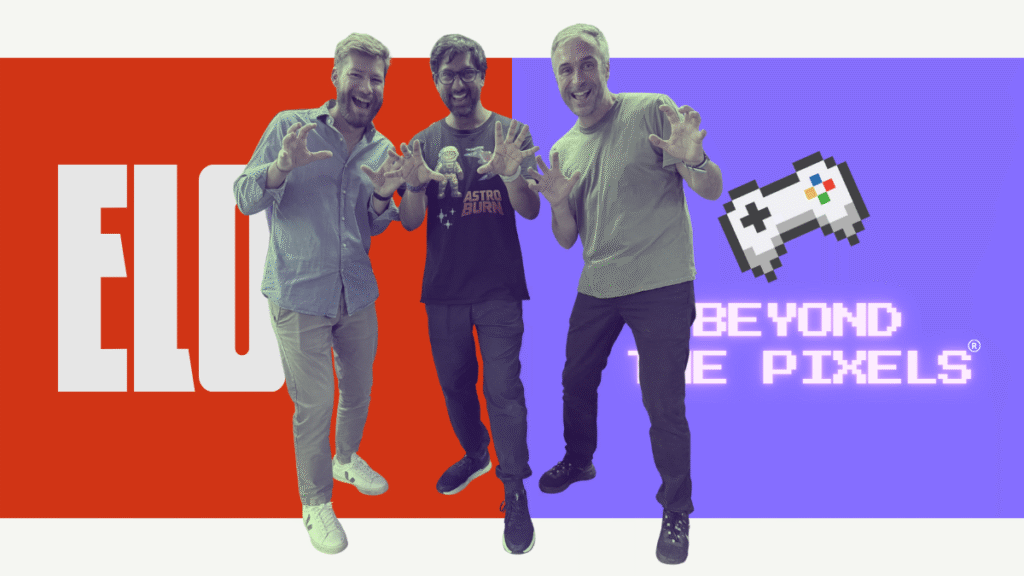
“It’s a very tough time in the industry at the moment, but I feel like there’s light and there’s hope if we start rethinking and reinventing, and that’s essential,” Dulull said. “I’m doing Beyond the Pixels. I’m reinventing the way we’re making games by going back to what I loved about gaming when I was a teenager.”
Beyond The Pixels’s mission is to bring back the fun, agility and community experience in game development. With a vision to make gaming more open, connected, and creator-driven, the studio is developing Astro Burn and future titles with deep focus on accessibility, community, and social integration.
Expect to see Beyond The Pixels’ games thrive across PC, consoles, mobile, fast-growing UGC ecosystems like Fortnite, Roblox, and Meta Horizon, disrupting the indie game studio business model by taking a more structured, smartly scoped game-jam-like approach to how commercial games are produced and released.
The technology-agnostic studio (using Unreal Engine, GDevelop or whichever engine works best for each project) will transform and extend the life of each IP it creates into film, television, and merchandising, laser-focused on launching indie game development into a new realm where small teams can build global entertainment brands.
ELO exists to empower gaming communities by building bridges between game creators and game communities. We craft experiences and shape relevancy through serving, creating and investing. It works with game studios, brands and capital to enhance the out-of-game gaming experience.
“The issue I’ve seen in a lot of the big games is that they assume that you have to make a big game in order to be taken seriously, right? And everyone assumes you need a big team as well. I speak to a lot of indie developers. They say they need three years and a team of four people,” he said.
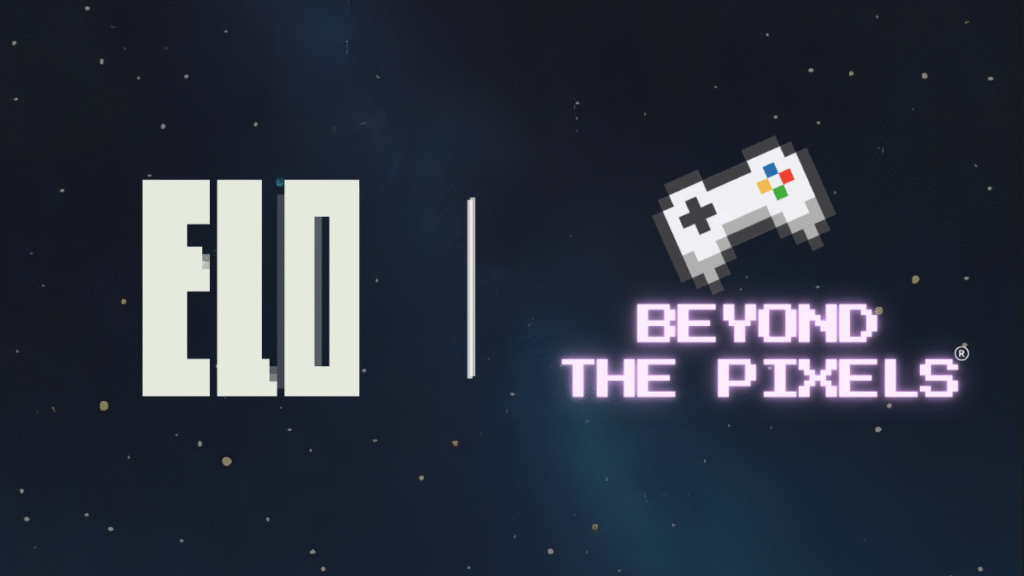
He added, “With triple-A, you’ve got to keep plowing loads more money and keep going. If you scope from day one saying our North Star is to bring back Super Nintendo-style games for today, then I feel like what we’re doing is more manageable. It’s more scalable as well, and more sustainable. It’s not going to be the next Cyberpunk. It’s simple mechanics and a storyline. Let’s just go back to making small games.”
“I wanted to get back into games. I started my career in games, worked in film and TV. I worked on one of the biggest cinematics with Dune Awakening. I spent three years on that. There was like a calling for me to go back into gaming and to be able to bring everything I’ve learned in film, TV and games, to do something new,” he said.
He saw that there were a lot of big studios closing down with layoffs and Microsoft and elsewhere.
“I wanted to do something with Beyond The Pixels to not only can make cool games, but also change the way we’re making games. And to do that, I wanted to rethink the model of making games and also the type of games that we make,” Dulull said. “I’m not a game developer looking to chase glory. I’m going back to the mid-90s, where I used to walk into an arcade and put a quarter in and play a level right to the end. I miss that feeling. I want to create games that brings that feeling back.”
He added, “Instead of being stuck to the 90s technology of writing code for several kilobytes onto a cartridge, we’re using the latest technology. We’re making small games that can be done within 12 months.”
There are other games on the slate, with the goal of doing one a year. The aim is to avoid “scope creep.”
It’s like the concept will get tested in a kind of game jam model, and then it will get fleshed out in the rest of the year.
“We’re not talking 80 hours of Elden Ring here. We’re talking pick up and play games with strong storylines and blending technology with that. The most important thing is tap into community from day one. That’s the big thing,” he said.
Players are testing the Astro Burn game and offering feedback.
“It’s all about community,” he said.



